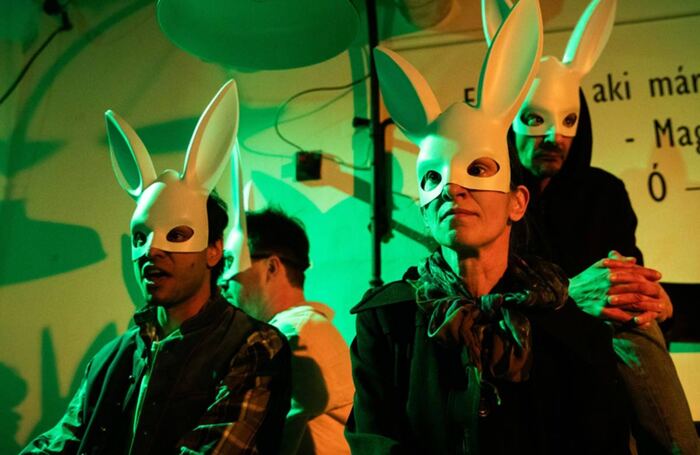British plays are a huge cultural export. Why don’t we talk about that more?
Recent conversations about the state of new writing in the UK often overlook the fact that British plays are one of our significant cultural exports. Take a look at the repertoires of the most influential houses in Europe and you’ll come up against some familiar names. Alongside Simon Stephens and Sarah Kane – whose work has always been popular in Europe, especially in Germany – you’re just as likely to find a production of a play by Duncan Macmillan or Lucy Kirkwood.
While some theatres, such as the Dailes in Latvia, which I visited recently, have an overtly Anglophile programme – including work by Macmillan, Alistair McDowall, Lucy Prebble and Dennis Kelly – many others have at least one British play in the repertoire.
Simon Stephens’ popularity in Germany is often attributed to the fact that his work can accommodate bold directorial concepts
It’s easy to understand the popularity of some texts. Macmillan and Jonny Donahoe’s Every Brilliant Thing – their one-person show about depression – is both relatable and flexible, with certain elements that can be tailored to a local audience. Similarly, Macmillan’s Lungs, a two-hander about a couple agonising over whether or not to bring a child into the world, deftly interlaces the personal and the global and has an obvious thematic resonance, although perhaps it took Katie Mitchell’s famous bicycle-powered production for Berlin’s Schaubühne to really unlock this.
Kirkwood is big in Slovenia, with audiences in Ljubljana currently able to see productions of The Children, The Welkin and Rapture/That Is Not Who I Am. Stephens’ popularity in Germany is often attributed to the fact that his work can accommodate bold directorial concepts, leading to a fruitful relationship with the director Sebastian Nübling.
Continues...
Personally, I’m also fascinated by the ways in which more culturally specific work travels. British director Rikki Henry recently staged David Ireland’s Ulster American for the Schaubühne and I’d love to know how that play’s brand of humour landed in a different cultural context. I recently saw a Hungarian production of David Greig’s The Strange Undoing of Prudencia Hart, by director Dániel D Kovács for independent Budapest theatre Stúdió K Színház, and it turns out that with a good translation, a Scottish verse play written to be staged as a cèilidh can connect with Hungarian audiences. One of the most interesting things about seeing a lot of European work is the new and often quite culturally distinct takes on familiar plays.
There are separate conversations to be had about why there’s no equivalent flow of European writing to UK stages and the colonial overtones of this process
There are a variety of reasons why British plays are so prevalent on the continent: the cultural dominance of English, the fact that our text-centric theatre culture means we simply produce more new plays, and the demands of the ensemble system. The Children, for example, is a gift to a theatre looking to find juicy roles for its older performers.
There are separate conversations to be had about why there’s no equivalent flow of European writing to UK stages and the colonial overtones of this process, as well as about which UK playwrights are granted this international platform. But it’s hard not to notice that few of the conversations about the crisis in new writing, the impact of cutbacks and the dwindling opportunities in the UK take into account the status of British writers on the continent and beyond – and this feels like an oversight.
Opinion
Recommended for you
Advice
Recommended for you
Most Read
Across The Stage this weekYour subscription helps ensure our journalism can continue
Invest in The Stage today with a subscription starting at just £7.99
 Natasha Tripney
Natasha Tripney













